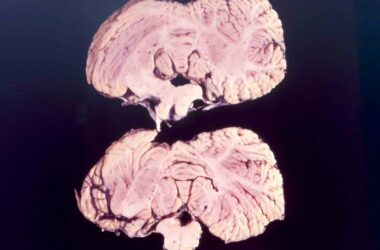People who are at genetic risk for Alzheimer’s disease may experience a decline in their sense of smell before any cognitive changes occur. This suggests that testing for changes in smell could improve early diagnosis and treatment of Alzheimer’s.
The sense of smell is closely connected to other brain functions such as emotion, pleasure, and memory. Since memory problems are a key feature of Alzheimer’s, researchers focused on the connection between smell and cognition.
A gene called APOE, which is associated with an increased risk of Alzheimer’s, is highly expressed in parts of the sensory system related to smell. People who carry a variant of this gene called APOE4 are three times more likely to develop Alzheimer’s than those without the variant.
In a study, researchers analyzed data from the US National Social Life, Health, and Aging Project. They found that among participants who carried the APOE4 variant, there were signs of weakening in their ability to sense odors between the ages of 65 and 69. Odor identification abilities also declined more quickly in those with the variant compared to non-carriers.
Interestingly, the decline in smell sensitivity occurred before any cognitive differences between the two groups emerged. This suggests that testing odor sensitivity could be a useful way to predict Alzheimer’s symptoms in genetically susceptible individuals within the next five years.
It is important to note that the study did not track who went on to develop Alzheimer’s or any signs of it in the brain. However, the results provide valuable insights into the relationship between smell loss and cognitive decline in individuals at high genetic risk for Alzheimer’s.
The next step is to determine if testing a person’s odor sensitivity can aid in the early diagnosis of Alzheimer’s and allow for earlier treatment. The researchers hope that smell testing can become as widely available for older individuals as vision and hearing tests.
Early detection of brain health abnormalities is crucial for implementing therapies as soon as possible in the disease course. Treatment earlier in the disease course tends to have a larger impact. Olfactory screening, or testing of smell sensitivity, may be an important component of annual wellness visits for Alzheimer’s.








